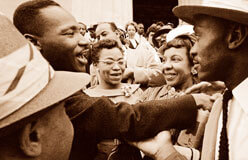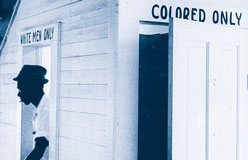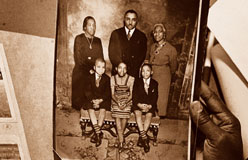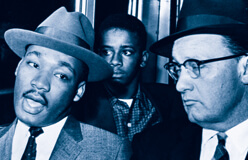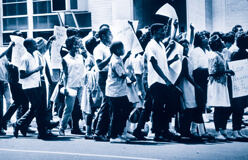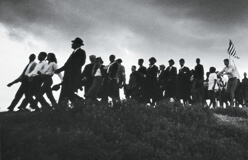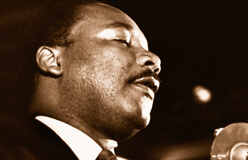Martin Luther King Jr. devoted his life to fighting injustice on behalf of all Americans. However, he didn’t believe in fighting with guns, tanks, or fists.
He believed in using peaceful means. He thought that positive words and ideas and nonviolent action could change the world. In 1955, when he was 26 years old and had just become pastor at a Baptist church in Montgomery, Alabama, King suddenly became the key leader in America’s civil rights movement. It was a crusade to end discrimination in all forms against all groups. For the rest of his brief life, he inspired people to fight for their rights using nonviolent means.
King paid a great price for his vision. From 1956 until his death in 1968, he was arrested, stabbed, stoned, and finally, assassinated. Although he loved his family, he was often away from home. He traveled from town to town, state to state, and even to Europe, Africa, and Asia to share his dream of peace and love.
